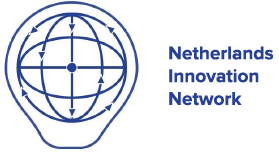#2 Quantum Technology & 5G NL-IL mini-symposium 1 Dec 2020 (01 Dec)
Background
In a rapidly changing world, technology is increasingly defining how we live. In the future, technology and innovation will have a major impact on societal challenges. Innovation processes are going faster than ever. Responding to this requires a lot of knowledge and ability to act. As a small country, NL is scientifically among the top in many key technologies and can also build on companies with a strong technology position. But without a focus on key technologies such as artificial intelligence, photonics, quantum technology and nanotechnology, NL will not be able to create sufficient mass. This is necessary to remain internationally competitive in further development, diffusion, and upscaling phases.
Both NL and IL aim at being at the forefront of the KETs and the most effective way to achieve technological leadership and to compete with the giants in the field is through innovation cooperation.
5G
5G offers a lot of chances for international cooperation. NL has an excellent communication network and is currently changing from 4G to 5G. COVID-19 proves how important it is to work digitally, making 5G even more crucial, while taking the wellbeing of the population and the acceptance of this technology into consideration. In NL, several 5G pilots are currently in progress. IL launched its 5G communication technology at the end of September 2020 and will upgrade its communication network to 5G too.
Quantum technologies (QT)
Dutch universities and knowledge institutes (QuTech and QuSoft) are leaders in the field of qubits, quantum internet, quantum algorithms and post-quantum cryptography, attracting global business investments and talent. NL established Quantum Delta NL and developed its national agenda on quantum technology. IL aims to financially invest in a national $360 million five-year Science and Quantum Technology program for 2020-2025. IL will invest the funding, not in building a quantum computer, but rather is advanced encryption, code-breaking capability, complex simulations, and quantum sensors.
5G and QT convergence
By 2026 it is expected that more than 43 billion IoT devices will be connected. Global autonomous vehicles market is expected to reach $615.02 billion USD by 2026 with a forecasted fleet 54 million self-driving cars in use globally by 2035. These two emerging technologies will make use of 5G systems and the edge mobile computing segment of the telecommunication infrastructure. These are only two examples to highlight the challenges and opportunities in the area of providing quantum, unbackable cybersecurity for the masses.
This mini symposium will bring leading scientists in the field of 5G and quantum technology together to showcase the cutting-edge technology developments in both countries. The symposium is open to scientists and students, startups and companies, policy makers.
Program
16:00-16:05 Welcome notes and possible funding opportunities[1]
HE Hans Docter, Netherlands Ambassador to Israel
Dr. Racheli Kreisberg, Innovation Attaché, Netherlands Embassy in Israel and Israeli Dutch Innovation Center (IDIC)
16:05-16:20 The Quantum Delta Netherlands initiative
Prof. Kareljan Schoutens, Faculty of Science UvA and co-director QuSoft
16:20-16:35 Topological quantum registers
Prof. Eytan Grosfeld, Department of Physics, Ben Gurion University, BGU-QST
16:40-16:55 Eindhoven quantum key distribution testbed
Prof. Idelfonso Tafur Monroy, Center for Quantum Materials and Technology Eindhoven, TU Eindhoven
16:55-17:10 Quantum Key Distribution (QKD) – augmented the security framework of an optical 6G fronthaul
Prof. Shlomi Arnon, Department of Electrical and Computer Engineering and director of the Center for Quantum Science and Technology (BGU-QST)
17:10-17:25 Key recycling protocols, and quantum readout of Physical Unclonable Functions
Dr. Boris Škorić, QT/e, Dept. of Mathematics and Computer Science, Eindhoven University of Technology
17:30-17:45 Quantum technology with atoms at BGU
Prof. Ron Folman, Department of Physics, Ben Gurion University, Head of the atom chip laboratory at BGU, Founder of the BGU nano-fabrication facility and Founder of the BGU center for quantum science and technology
17:45-18:00 Wrap-up
[1] NWO Money Follows Cooperation, EuroTech, EU QCI, New Horizon program call: DIGITAL-EMERGING-11-2022 (draft RIA call), MCSA ITN (Nov 2021)
